UK troops fly to Sudan as officials work on evacuation plan for Britons
Government still working out evacuation plan as pressure builds to help ‘abandoned’ UK citizens
Your support helps us to tell the story
From reproductive rights to climate change to Big Tech, The Independent is on the ground when the story is developing. Whether it's investigating the financials of Elon Musk's pro-Trump PAC or producing our latest documentary, 'The A Word', which shines a light on the American women fighting for reproductive rights, we know how important it is to parse out the facts from the messaging.
At such a critical moment in US history, we need reporters on the ground. Your donation allows us to keep sending journalists to speak to both sides of the story.
The Independent is trusted by Americans across the entire political spectrum. And unlike many other quality news outlets, we choose not to lock Americans out of our reporting and analysis with paywalls. We believe quality journalism should be available to everyone, paid for by those who can afford it.
Your support makes all the difference.British troops have flown into eastern Sudan as officials consider “every possible option” to evacuate thousands of UK nationals stranded in the wartorn country, with some saying they feel “abandoned” by the government.
The soldiers are understood to have landed at Port Sudan, 500 miles from the capital Khartoum, to scope out options in what British defence officials say could be a more difficult operation than the evacuation from Kabul in 2021. But it does not mean a rescue plan is imminent, as Rishi Sunak’s government continues to decide on a course of action.
The daughter of a British doctor trapped in Sudan told The Independent he had been shot in the leg as he “risked his life” to rescue his mother, as pressure builds on the government to help around 4,000 British nationals trapped in the war-torn country.
Ministers held another Cobra meeting on the crisis on Monday afternoon. Britons stranded in Sudan continue to be advised to “stay indoors”, register with the Foreign Office and await further instructions, despite other European nations flying some of their citizens to safety.
Foreign Office minister Andrew Mitchell told the Commons on Monday that British nationals in Sudan could “exercise their own judgment” on whether to relocate themselves – but said they do so at their own risk.
Acknowledging the dire situation in the capital Khartoum, Mr Mitchell said food and water are becoming “increasingly scarce”, while energy supplies are disrupted and internet and telephone networks are becoming difficult to access.
Mr Mitchell said: “We recognise circumstances will vary in different locations across Sudan, so we are now asking British nationals to exercise their own judgment about their circumstances – including whether to relocate – but they do so at their own risk.”
Mr Sunak’s official spokesperson said the government was “working around the clock” to support Britons stuck in Sudan, saying all “diplomatic avenues”, including working with neighbouring countries, are being pursued.
Defence minister James Heappey said it is “too dangerous” to use British troops to rescue UK citizens, adding the situation is “very different” from the 2021 Afghanistan evacuation. He said a plan to deploy armed forces would be “unhelpful and unrealistic”.
Asked if it would be too dangerous to try and use British forces to extract people, he said: “Yes. The danger is that other than the very tight and controlled mission that we did Saturday into Sunday to extract the diplomats over which we had a very tight degree of control.
“Beyond that, we would effectively be inserting foreign troops, not just us there’ll be other countries that would want to do it, into the parts of Khartoum that has been the most hotly fought over.”
No 10 earlier declined to comment on reports that two British warships could be heading to Port Sudan to assist with evacuations. RFA Cardigan Bay and HMS Lancaster are understood to have been lined up as options to help people out of the wartorn country.
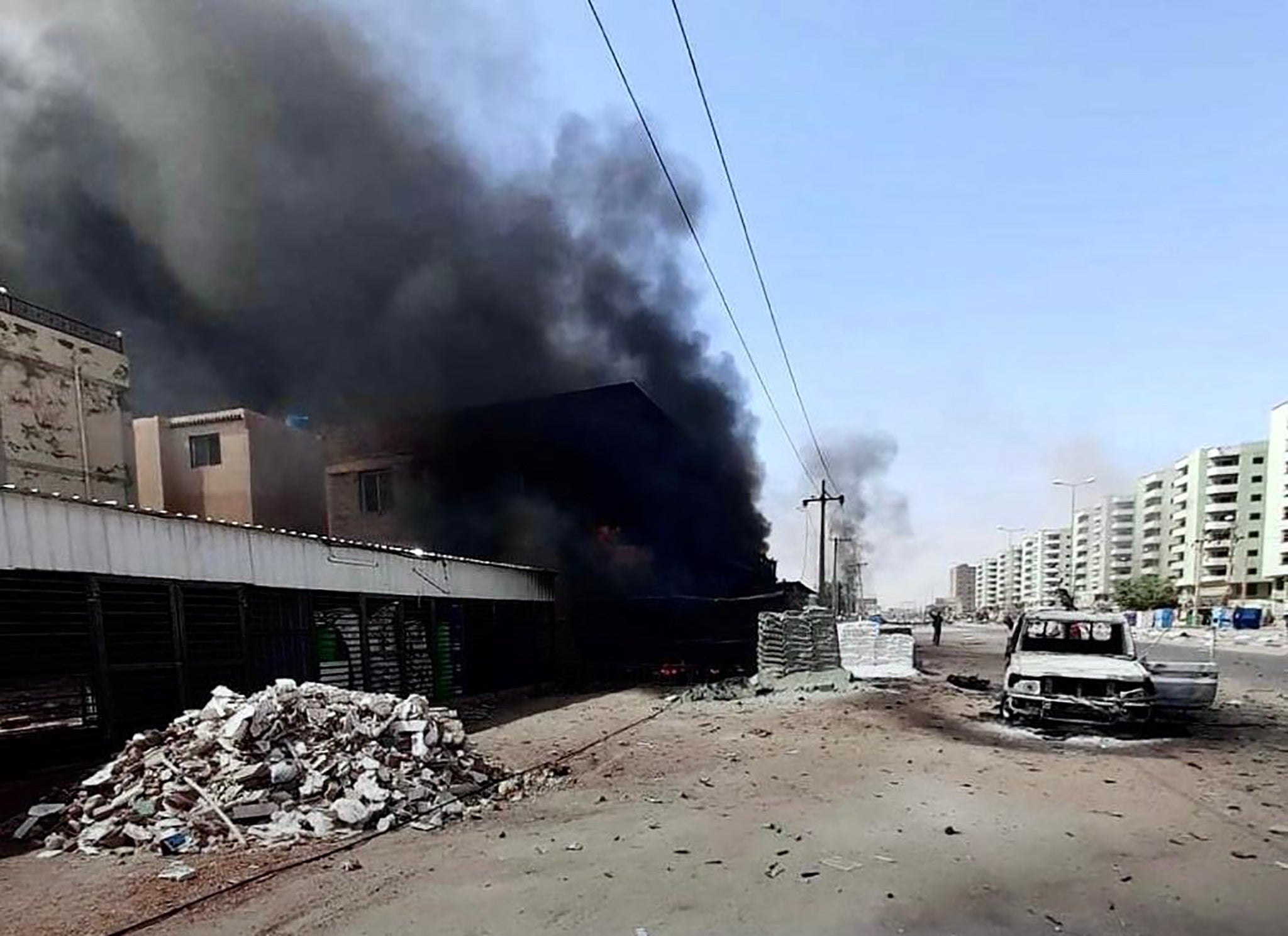
It is thought that if used, RFA Cardigan Bay, currently in Bahrain, and HMS Lancaster, in India, would supplement possible flights out of Sudan. But it could take several days for them to arrive.
UK officials have the option of airlifts using an airstrip just outside of the capital that was used to evacuate British diplomats on Sunday. Or British citizens could be helped or urged to make their way to Port Sudan, where they could be flown out or taken on the Royal Navy vessels.
Some Britons in Sudan said they felt “abandoned” after diplomats were rescued and were organising their own, dangerous private evacuations – with senior MPs demanding the government tell trapped Britons “now” whether there will be an evacuation.
A British doctor trapped in Sudan, who retired recently after working in the NHS for over 30 years, has been shot in the leg as he “risked his life” to rescue his elderly mother, his daughter told The Independent.
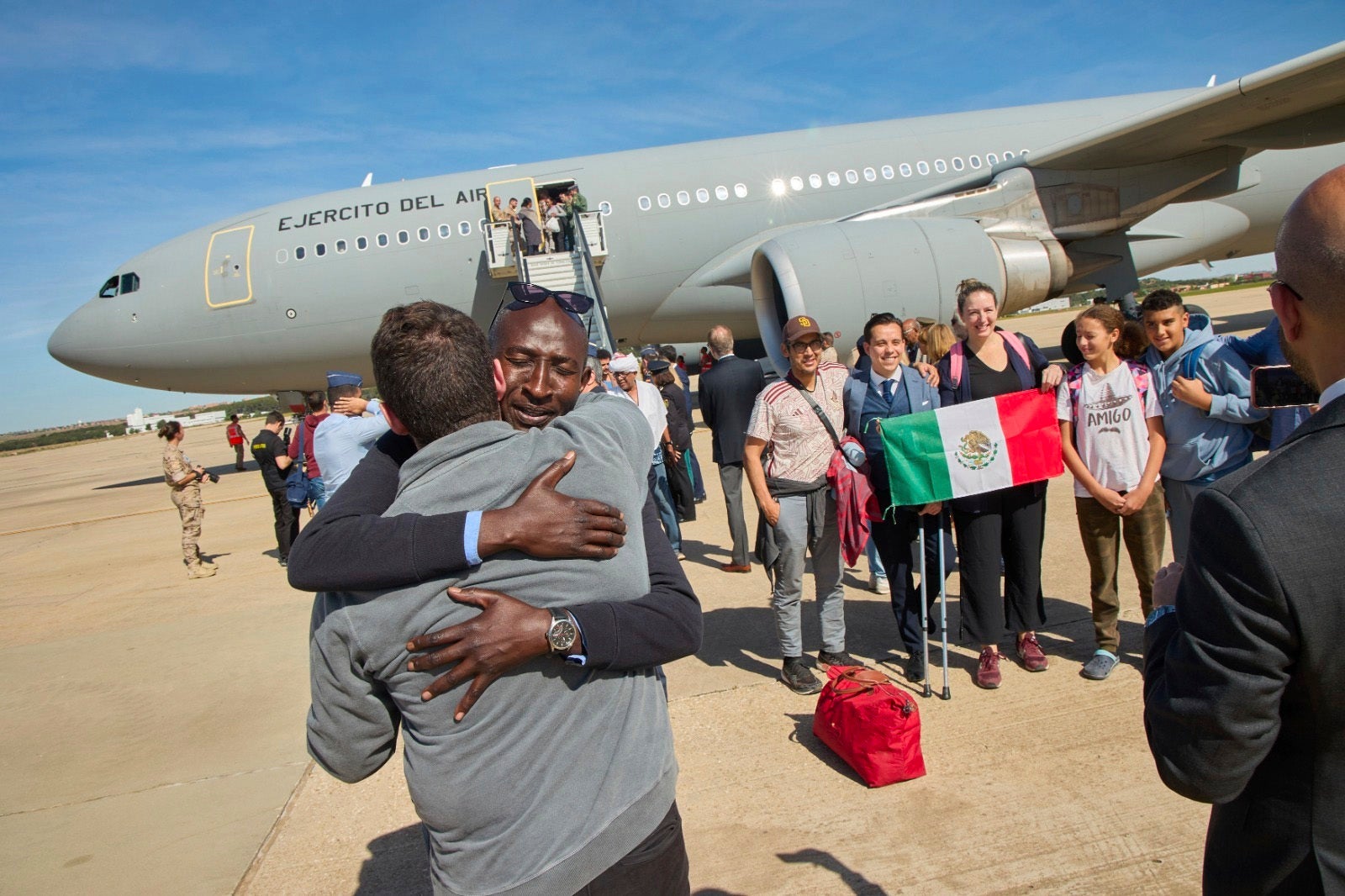
The doctor was visiting his family in Khartoum when violence broke out. His daughter said her father was shot and wounded while driving across the city to move his mother, who had been without water and electricity, to a safer place.
William, a UK citizen in Sudan, told the BBC he was forced to “go private” and leave Khartoum on a bus arranged by his Sudanese employer because “we’ve had absolutely nothing but nonsense from the government”.
The prospect of airlifting large numbers of people out of Sudan has been complicated by the fact that most major airports have become battlegrounds, while movement out of the capital has proved perilous.
Senior Tory MP Alicia Kearns told the Commons that “time was running out” and argued that lessons had not been learnt from the chaotic evacuation from Afghanistan. “We need to do the evacuation now,” she told MPs.
The chair of the Foreign Affairs Select Committee said it was unacceptable that UK nationals stuck in Sudan registered with the Foreign Office had gotten only limited, automated messages in the past week.
“We have a moral obligation to tell British nationals as soon as possible that is the judgement that has been made, because they then need to make their own decisions,” she told BBC Radio 4’s Today programme earlier on Monday.
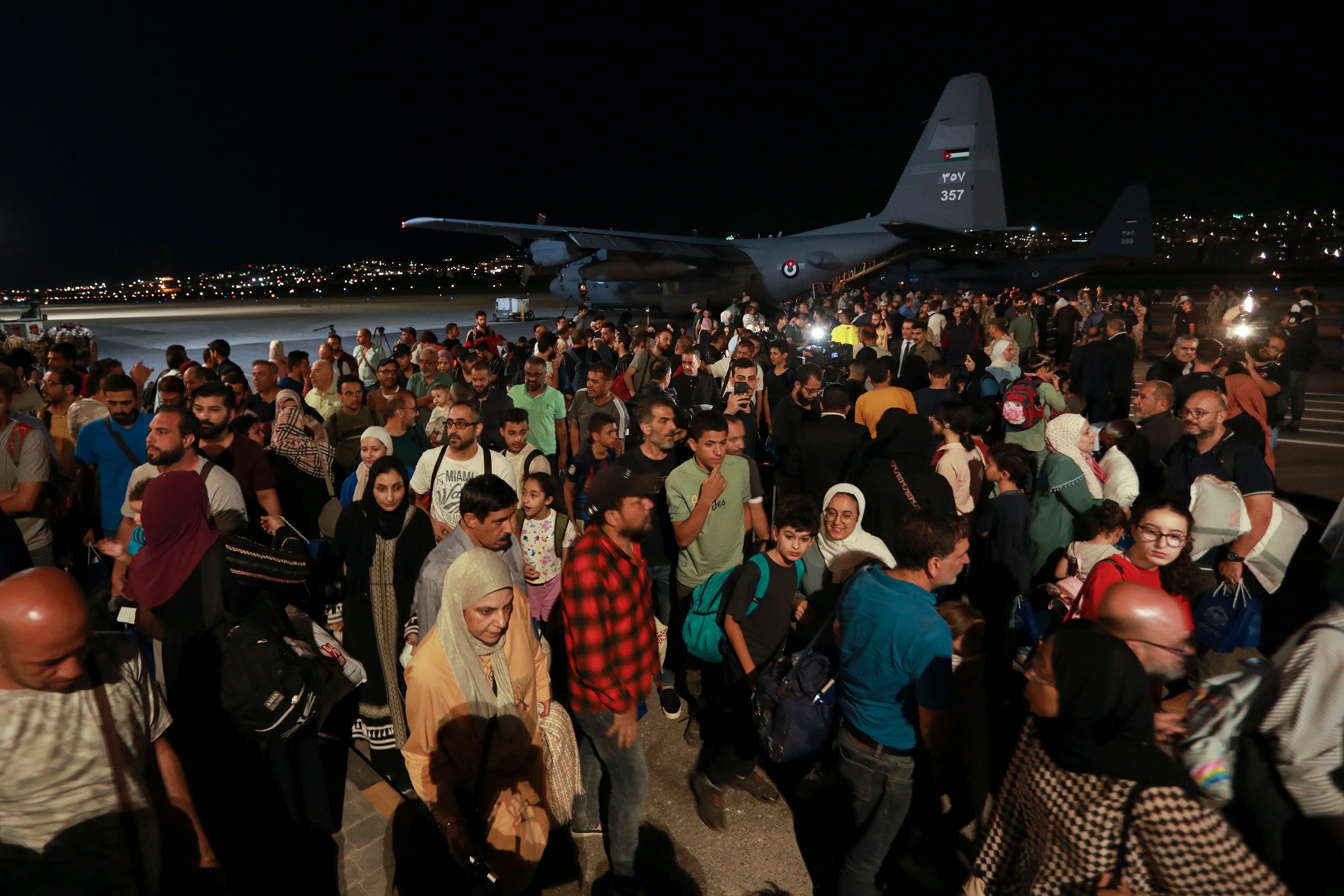
Mr Mitchell said he hoped the word “shambles” will not be applied to the Foreign Office’s work on addressing the situation in Sudan. Mr Mitchell also told MPs that 200 civil servants were working shifts “night and day” in the crisis centre set up in response to the conflict.
Tory MP Tobias Ellwood, chair of the Defence Select Committee, called for a “clear-cut plan” to evacuate British citizens. “If that plan does not emerge today, then individuals will lose faith and then start making their own way back,” he told GB News, warning that it could lead to “very difficult situations”.
Meanwhile, it emerged that Giles Lever, the UK ambassador to Sudan, was on holiday when violence erupted in Khartoum. The Foreign Office was said to have been caught by surprise due to a belief violence was in the build-up to Eid.
Mr Mitchell confirmed Mr Lever was back in Britain at the break-out of conflict, telling MPs: “The ambassador is entitled to return to the UK either on diplomatic business or indeed on leave if that is appropriate.”
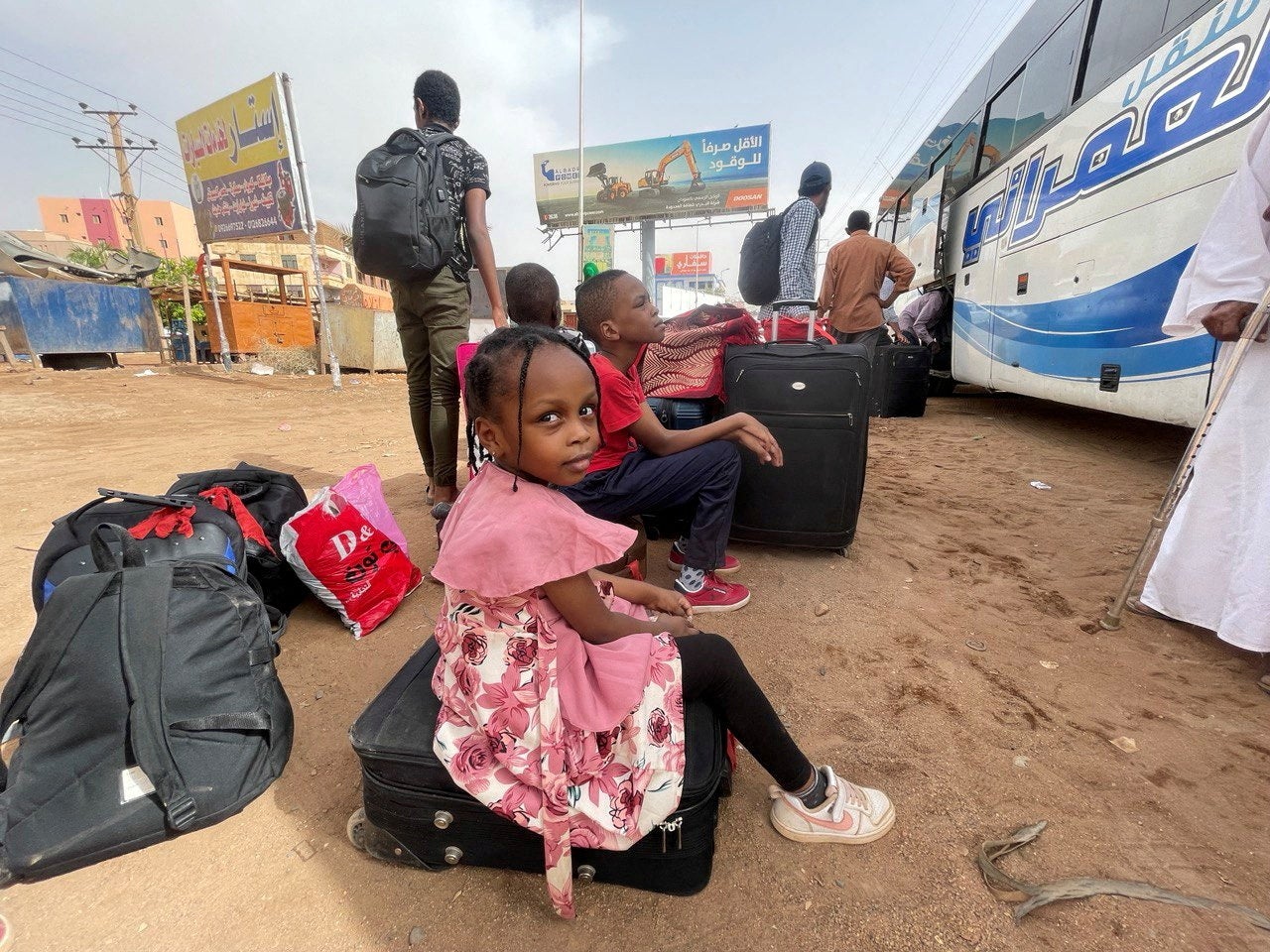
The development minister also defended the prioritisation of embassy staff at the weekend, saying there had been “a very specific threat to the diplomatic community” in the capital Khartoum.
The EU’s foreign policy chief Josep Borrell said more than a thousand people have been extracted through the combined efforts of its member states. Germany has flown out around 400 people from Khartoum, while France airlifted around 100 people to neighbouring Djibouti.
About 50 Irish citizens were evacuated from Khartoum to Djibouti with the support of France and Spain, with more evacuations planned, deputy premier Micheal Martin said.
Saudi Arabia’s army evacuated 91 Saudis and 66 citizens from different countries via a naval ship at Port Sudan. The Chinese foreign ministry said the first group of Chinese citizens has been evacuated, but did not give a number.
After a partial lull in the conflict between the army and the Rapid Support Forces (RSF) paramilitary group, fighting picked up again on Monday. A large cloud of dark smoke could be seen near the international airport in Khartoum, and booms of artillery fire shook the surroundings.
UN secretary general Antonio Guterres warned of the risk of “a catastrophic conflagration” with wider repercussions and urged international powers to exert maximum pressure for a ceasefire.
US secretary of state Antony Blinken said Washington was in close touch with Sudanese military leaders and pressing them to fully implement ceasefire deals. “A ceasefire is one of our priorities,” said No 10.



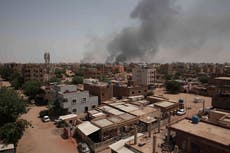

Join our commenting forum
Join thought-provoking conversations, follow other Independent readers and see their replies
Comments